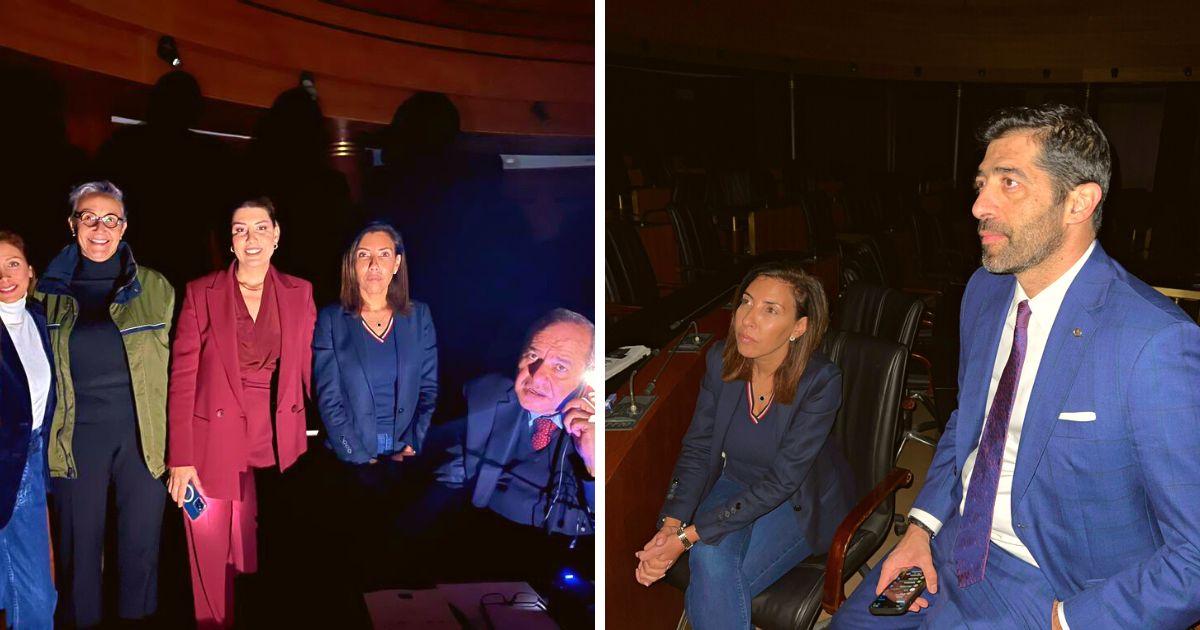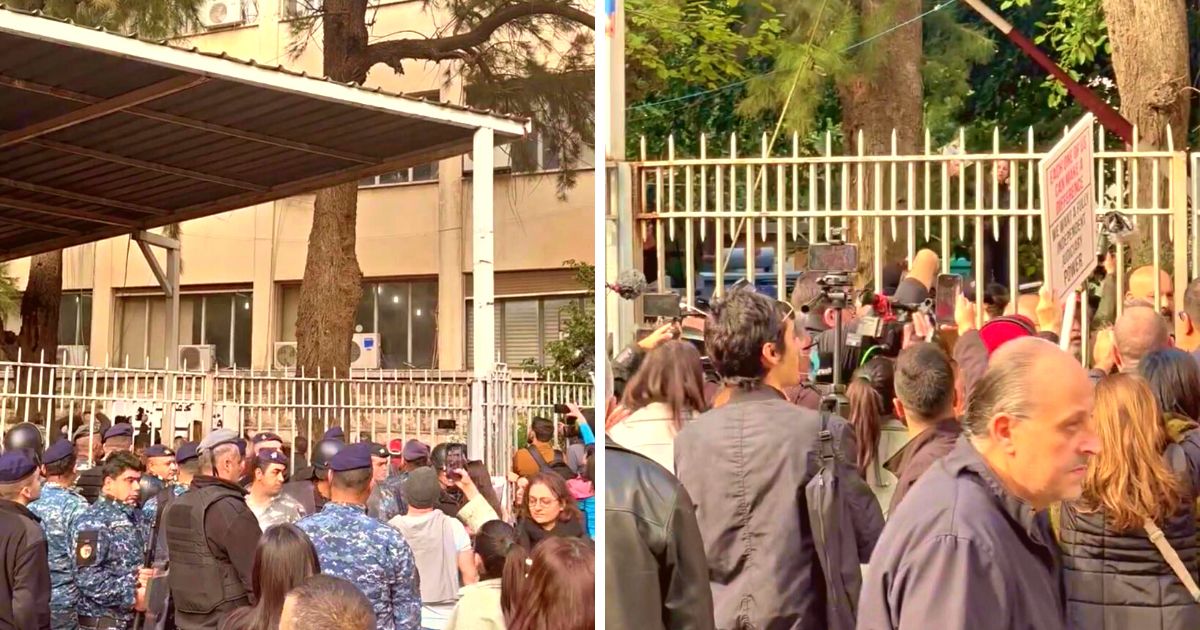Caretaker Minister of Interior Raya Hassan handed two reports on prison improvement to the head of Beirut Bar Association, Melhem Khalaf. The first report includes a description of the situation in Lebanon’s prisons and the conditions and needs of prisoners. The second is a roadmap prepared by the Ministry of Interior for the transformation of prisons into a place of rehabilitation.

A joint meeting took place on Friday in the office of Minister Hassan with Melhem Khalaf, members of the Syndicate Council, Minister’s Advisor for Prison Affairs, as well as Brigadier General Fares Fares, and the advisor to the Minister of Interior, Karim Majdalani.
After the meeting, a joint press conference was initiated by Minister Hassan who thanked the head of Beirut Bar Association Melhem Khalaf for taking the initiative to visit 25 prisons around Lebanon to check on the conditions of the prisoners.
Caretaker Minister Hassan explained that these reports were accomplished by the Ministry during her months in office. “The first was accomplished by a cell composed of consultants and security personnel, which visited the prisons in all Lebanese territories and identified the needs and demands of the prisoners […],” she said.
As for the second report, Hassan explained that it is a road map that her ministry worked on with the help of the British government. It is related to changing the prisons from the principle of holding freedom to the principle of quality detention.
“That is, the prison should be converted from a place of detention to a place of rehabilitation,” she said. According to her, the road map consists of six topics:
- The first and biggest challenge is addressing the issue of overcrowding in prisons.
- The second relates to ways in which to support and integrate prisoners in Lebanese society.
- The third relates to prison administration and security.
- The fourth relates to how to improve facilities, equipment, and mechanisms.
- The fifth relates to juveniles and women.
- The last axis is related to prison governance.
“The aim of this report was to present it to the Council of Ministers to place everyone under their responsibilities, especially since there is a misconception among some that the Ministry of Interior is solely responsible for prisons in Lebanon. But the truth is that there are several ministries responsible, including the ministries of justice, health, and social affairs, “she stated

She added, “This road map cannot be applied in a short period, but it needs to detail its steps in two stages. The first is short-term and the second is long-term. It also needs international support from donors whether through civil organizations or international organizations interested in participating in the completion of this file by securing the necessary funding.”
“This map was presented to donors last summer through a workshop attended by several embassies and international organizations in order to search for how to fund it from the bodies that we identified in the road map,” she revealed
For his part, Head of Beirut Bar Association Melhem Khalaf thanked Hassan for “this continuous interest,” stressing on the importance of responsibly performing state tasks, even when in a caretaking status.
 Via The Daily Star/Mohamad Azakir
Via The Daily Star/Mohamad Azakir
He added: “The meeting, which preceded the conference, confirms the total cooperation in knowing and confirming what we got in the survey that we conducted on a number of people who have served their sentences and have some fines that must be paid.”
“We do not pay large amounts of money, but what we pay is within our capabilities as lawyers to contribute to this matter. As we have committed ourselves to, there should not be any prisoner without a lawyer, especially if he is not capable. The syndicate will appoint a lawyer for this matter […].”
“In our capacity as the bar association, we will request details on the latest judicial procedure of every detainee, and we will request the full cooperation of the judiciary,” he ascertained.
A few days ago, and within the initiative of the Bar Association to check the conditions of the prisoners, 727 volunteer lawyers, 65% of which are women as pointed out by the head of the Bar Association, were sent to visit 25 prisons in Beirut and the Lebanese governorates.
The initiative aimed to achieve justice to the many prisoners and detainees that are either falsely convicted, have been waiting for a conviction for months and years, or lack the financial or legal support for their release.




















